Learn Web Designing
“Build Stunning Websites – Kickstart Your Web Design Journey at CMIT Institute”
Offline / Online / Hybrid
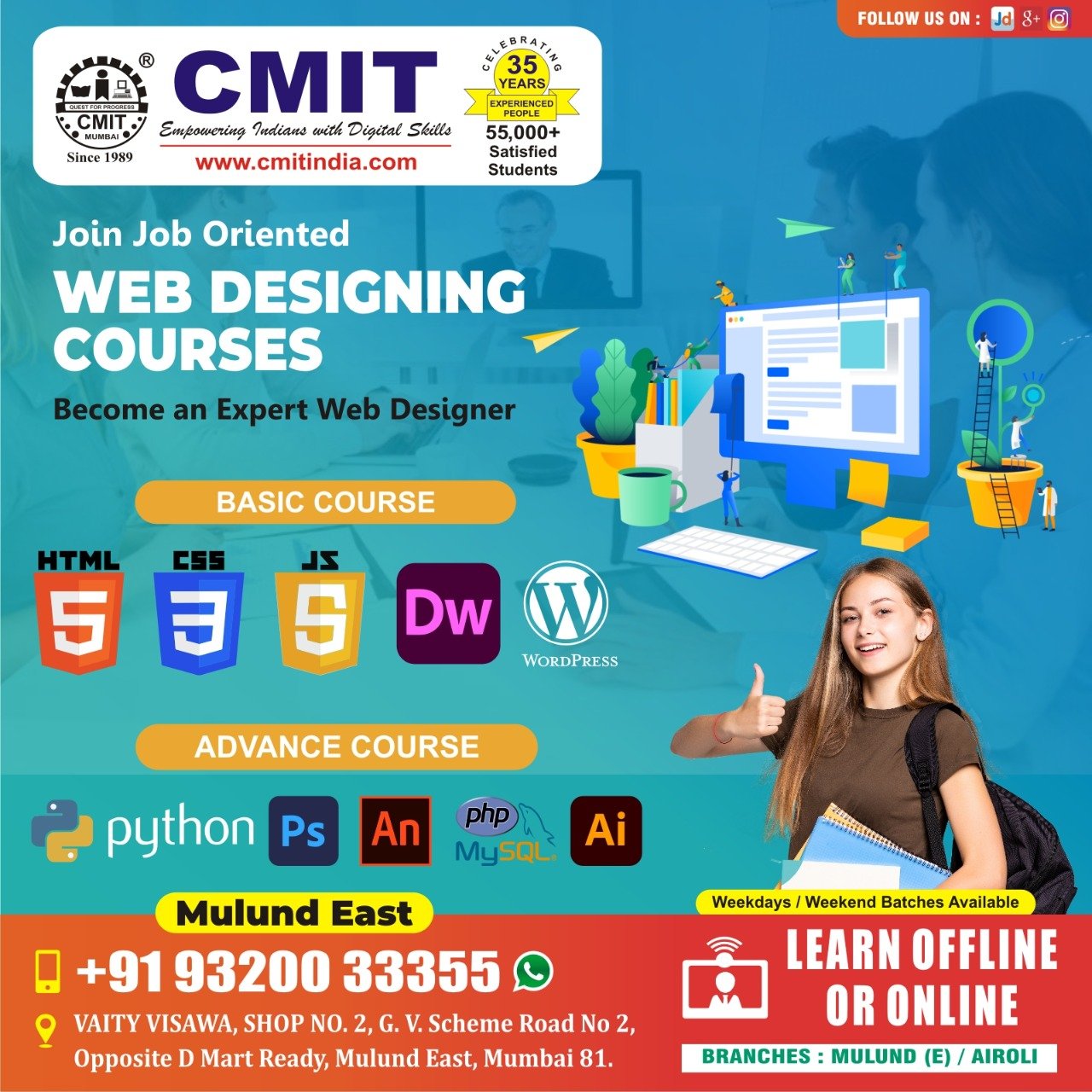
Web designing is the method of designing visually appealing, user-friendly, and interactive websites. It includes multiple elements such as layout, color scheme, typography, graphics, and user interface design to provide an optimal user experience.
Quick Enquiry
Student Review
Trustindex verifies that the original source of the review is Google. I've recently completed diploma course in CMIT computer institute , , mulund east and it was really helpful. The course taught me a lot skills in computer. The mentors here are very helpful and understandable.There teaching skills are very goodTrustindex verifies that the original source of the review is Google. As being a cmit student all the faculty has helped me to experience a good journey towards the Microsoft World and Tally prime which has enhanced my technical journey.Trustindex verifies that the original source of the review is Google. The faculty is very great and supportive the teachers are so good in teaching and plus the doubts are always cleared thoroughlyTrustindex verifies that the original source of the review is Google. A very good experience overall. The faculties try their best to make us understand the concept.Trustindex verifies that the original source of the review is Google. The institute is good all teaching staff in nice they teach us till we don't understand the concept of the topic Thank you!!Trustindex verifies that the original source of the review is Google. Overall experience was good, the Excel teacher teaching style was good, But I would have loved if it was only one group teaching for full 1 hour. But overall good value addition and good value for money. ThankyouTrustindex verifies that the original source of the review is Google. I recently completed the Advanced Excel course in CMIT Computer Institute, Mulund East, and it was really helpful! The course taught me a lot of new Excel skills that I can now use for work or personal projects.Trustindex verifies that the original source of the review is Google. It was an amazing experience here learning at CMIT , all my doubts were cleared and explained throughly !Trustindex verifies that the original source of the review is Google. Very good
Why Learn Web Designing ?
Web design is a sought-after skill in today's digital world. Almost every business or organization needs an online presence, so there's a constant demand for skilled web designers.
It opens up various career opportunities. You can work as a freelance web designer, join a design agency, or even work in-house for companies across industries.
Web design often involves understanding user behavior, which in turn helps in creating better user experiences. Learning web design can introduce you to the principles of UX/UI design.
If you're in a related field like marketing, content creation, or development, knowing web design can complement your existing skill set and make you more versatile.
Web Designing Level Wise
- HTML Course Contents
- CSS Course Contents
- JavaScript Syllabus
- WordPress Contents
HTML and World Wide Web
- WWW and Markup Languages
- Rules and Tools for Building HTML Documents
Basic formatting and Hypertext Links
- How HTML Documents are Structured
- Basic formatting elements
- HTML Lists
- Hypertext Links
Bringing Web Pages to Life with Images and Multimedia
- Images and multimedia on the Web
- Creating Image links
- Creating ImageMaps
- Adding Audio and Video
HTML Tables
- Working with Tables
- Formatting Tables
- Using Tables for page layout
HTML Frames
- Working with Frames.
- Creating Frame Documents
- Using Frames with Hyperlinks
HTML Forms
- Working with Forms.
- Creating Form Elements
- Grouping Elements with Field Set
Introduction to Cascading Style Sheets (CSS)
- Designing with Style Sheets
- Rules for creating Style Sheets
- Different types of Style Sheets
Applying Colors and Backgrounds
- Applying Colors
- Applying Background Techniques
Text and Font Properties
- Typographical Properties
- Font Properties
List and Table Properties
- Applying styles to lists
- Applying styles to Tables
CSS Positioning
- Positioning Elements Absolutely and Relatively
- Layering Elements with the z-index Property
Box Properties
- Formatting with the Box Model
- The DIV and SPAN Elements
- Applying Border and backgrounds
- Floating Elements
Creating Rules
- Applying Class and ID Selectors
- Linked Style Sheets
- Rules in Conflict – Cascading Orders
Design and usage techniques
- Dynamic Link Colors
- Cursor Styles
- Styling form elements
Introducing JavaScript
- Requirement for JavaScript
- Features for JavaScript
- How to add JavaScript to your web Page
Basic Input Output in JavaScript
- Printing on a web page
- Taking Input from user using Prompt and From Elements.
- Printing message through alert and write
Variables and operators
- Declaring variables and storing data
- Different type of operators
- Use of variables and operators in expressions
Decision making in JavaScript
- Using if .. if…else nested if
- Using Switch statement
Control Statements
- Working with loops – while , for , do…while
- Using break and continue
Working with Arrays in JavaScript
- Defining an Array
- Initializing an array
- Array operations
Writing functions in JavaScript
- Defining a function and calling it
- Passing arguments
- Returning values
Working with Object in JavaScript
- Defining an Object
- Using object properties
- JavaScript In built Objects – Date , Math
Working with the Even Model – DOM
- Understanding Events
- Using Events in pages
- Dynamically updating Styles and Contents of Web Pages
Introduction for WordPress Check Your Theme
- Ensure that your theme is properly installed and activated.
- Go to Appearance > Themes in your WordPress dashboard and check if the correct theme is active.
Review Page Settings
- Make sure the page template is set correctly. When editing a page, check the Page Attributes section on the right sidebar and ensure the appropriate template is selected.
Inspect Plugins
- Sometimes plugins can conflict with your theme. Disable all plugins and see if the issue persists. If the issue is resolved, enable the plugins one by one to identify the problematic one.
Examine Custom Code
- If you’ve added any custom code (e.g., in
functions.php), double-check it for errors. A mistake in the code can break the layout.
Clear Cache
- Clear your browser cache and any caching plugins you might be using. Sometimes changes aren’t reflected immediately due to caching.
Check for Updates
- Ensure your WordPress, theme, and plugins are all up to date. Outdated software can cause compatibility issues.
- PHP with MySQL Course Contents
- PhotoShop Course Contents
- CorelDraw or Illustrator
Introduction to PHP and MySQL
- A widely-used, open-source scripting language especially suited for web development.
- PHP scripts are executed on the server.
- It can be embedded into HTML.
MySQL
- An open-source relational database management system (RDBMS).
- It uses Structured Query Language (SQL) to interact with the database.
- Known for its reliability, flexibility, and ease of use.
Basic Concepts
PHP Basics:
- Variables: Used to store data.
- Data Types: Integers, Floats, Strings, Arrays, Objects.
- Control Structures: If-else statements, switch cases, loops.
- Functions: Blocks of code that can be reused, can take parameters and return values.
MySQL Basics
- Databases: Containers for tables, which store data.
- Tables: Organized into rows and columns.
- Data Types: Various types to define the nature of data, like INT, VARCHAR, DATE, etc.
- Primary Key: A unique identifier for table records.
Advanced Concepts
Prepared Statements
- Used to execute the same SQL statement repeatedly with high efficiency.
- Helps prevent SQL injection attacks.
Error Handling
- Handling potential errors that occur during database interactions.
- Using try-catch blocks for exception handling.
Getting Started with Photoshop
- Introduction to the Photoshop interface.
- Basic tools and their functions.
- Opening and saving files.
Basic Photo Editing
- Cropping and resizing images.
- Adjusting brightness and contrast.
- Basic color correction.
Using Layers
- Understanding layers and their importance.
- Creating and managing layers.
- Layer blending modes.
Advanced Photo Editing
- Using the healing brush and clone stamp tools.
- Advanced color correction techniques.
- Retouching portraits.
Working with Text
- Adding and editing text.
- Using text effects and styles.
- Creating text masks.
Using Filters and Effects
- Applying and customizing filters.
- Using smart filters.
- Creating custom effects.
Lesson 7: Creating Rules
- Applying Class and ID Selectors
- Linked Style Sheets
- Rules in Conflict – Cascading Orders
Lesson 8: Design and usage techniques
- Dynamic Link Colors
- Cursor Styles
- Styling form elements
CorelDraw
Overview:
- Developer: Corel Corporation
- Platform: Windows (with limited support on macOS via Parallels)
- Usage: Primarily used for vector graphic design, layout, and illustration.
Features
- User Interface: Known for its user-friendly interface with customizable toolbars and layouts.
- Tools: Offers a variety of tools for vector illustration, page layout, and typography.
- File Compatibility: Supports a wide range of file formats including AI, EPS, PDF, and SVG.
- Versatility: Good for both print and digital design; includes features for web design and document creation.
- Price: One-time purchase or subscription model; often considered more affordable than Adobe Illustrator.
Pros
- Ease of Use: Generally considered easier to learn and use, especially for beginners.
- Cost-Effective: One-time purchase option available.
- Robust Features: Includes unique tools like the ‘LiveSketch’ tool for drawing.
Cons
- Platform Limitations: Primarily available on Windows, with limited macOS support.
- Industry Standard: Less commonly used in some industries compared to Adobe Illustrator.
Adobe Illustrator
Overview:
- Developer: Adobe Inc.
- Platform: Available on both Windows and macOS.
- Usage: Industry-standard tool for vector graphic design, used extensively in professional environments.
Features:
- User Interface: Highly customizable and integrated with other Adobe Creative Cloud apps.
- Tools: Offers a comprehensive set of tools for vector design, including advanced drawing, coloring, and type tools.
- File Compatibility: Excellent compatibility with other Adobe products and supports a wide range of file formats.
- Integration: Seamless integration with Adobe Creative Cloud, making it easy to work with other Adobe tools like Photoshop and InDesign.
- Subscription: Available only via a subscription model, part of Adobe Creative Cloud.
- ASP.NET
- Python Basic
Introduction to ASP.NET
- Overview of ASP.NET and its evolution.
- Differences between ASP.NET Web Forms, ASP.NET MVC, and ASP.NET Core.
ASP.NET Core vs. ASP.NET Framework:
- Key differences and use cases.
- Advantages of ASP.NET Core over ASP.NET Framework.
Building Web Applications with ASP.NET Core:
- Overview of project structure and components.
- Key features and benefits of ASP.NET Core for web development.
ASP.NET MVC Architecture:
- Understanding the Model-View-Controller pattern.
- Benefits of using MVC for web development.
ASP.NET Web API:
- Introduction to creating RESTful services with ASP.NET Web API.
- Common use cases and best practices.
Authentication and Authorization:
- Implementing authentication using ASP.NET Identity.
- Role-based and claims-based authorization.
Introduction to Python:
- What is Python?
- High-level, interpreted programming language.
- Widely used for web development, data analysis, artificial intelligence, scientific computing, and more.
Python Features:
- Simple and easy to learn.
- Interpreted language.
- Dynamically-typed.
- Extensive standard library.
- Support for multiple programming paradigms (procedural, object-oriented, functional).
Setting Up Python:
Installation:
- Download and install from the official Python website.
- Verify installation using the command line.
Python IDEs:
- Popular Integrated Development Environments (IDEs) include PyCharm, VS Code, Jupyter Notebook, and IDLE.
Basic Syntax
Printing to the Console:
Using the
print()function.- Comments:
- Single-line comments using
#. - Multi-line comments using triple quotes (
'''or""").
Who Should Learn Web Designing ?
Benefits of Web Designing
A web designing course can help you develop your creative abilities by providing acknowledgment of design principles and web development technologies. The skills you obtain from this course help you to work on multiple projects that improve your portfolio. Moreover, you can learn how to create visual websites and collaborate with others to share ideas. Ultimately, this course can provide the tools and skills necessary to showcase your creative abilities through work in the web design industry.
After completing the web design course you can build a career in web designing which can allow you to get more out of this profession. Furthermore, these skills open a room of new opportunities for you, such as working full-time and running your own business. Web designing is more beneficial and easier than other courses, and web designing professionals earn a good income from this profession by occupying an irreplaceable position in an organization.
- In the digital world, there are numerous opportunities to work as a freelance web designer. Web designing course provide the opportunity to learn the latest technologies and trends, improve your skills, build a professional portfolio, and network with other designers and professionals in the industry.
-
- Web designing improves your creative abilities, enhances your creative skills, and allows you to work on a variety of projects and industries while earning a competitive salary.
-
In today’s technological age, every company or organization must have a professional website to attain an online presence. Even though there are large companies that can set up their website for marketing depending on their business, this step may be a little pricey.
- After completing the web designing course, you can get a chance to apply in multiple organizations, where the working alignment is more comfortable and enjoyable for professionals.
Average Salary For Web Designers
| Job Profile | Average Salary (in LPA) |
|---|---|
| Web Designer | 3.2 Lakhs LPA |
| Senior Web Designer | 6.3 Lakhs LPA |
| Graphic Designer | 3.6 Lakhs LPA |
FAQ"S
Average salary for a Web Designer in India is 3.2 Lakhs per year (₹26.8k per month). Salary estimates are based on 18k latest salaries received from various Web Designers across industries.
- Xyz Company Web Designer Salary – ₹10.5 Lakhs per year
- Google Web Designer Salary – ₹10.3 Lakhs per year
- Microsoft Corporation Web Designer Salary – ₹8.8 Lakhs per year
- Amazon Web Designer Salary – ₹8.6 Lakhs per year
- ABC Web Designer Salary – ₹8.1 Lakhs per year
Average starting Salary for Web Designer in India is around ₹0.9 Lakh per year (₹7.5k per month). No prior experience is required to be a Web Designer.
Highest salary that a Web Designer can earn is ₹5.6 Lakhs per year (₹46.7k per month).
An Entry Level Web Designer with less than three years of experience earns an average salary of ₹2.4 Lakhs per year. A mid-career Web Designer with 4-9 years of experience earns an average salary of ₹4.5 Lakhs per year, while an experienced Web Designer with 10-20 years of experience earns an average salary of ₹8.6 Lakhs per year.
Affiliations / Authorizations
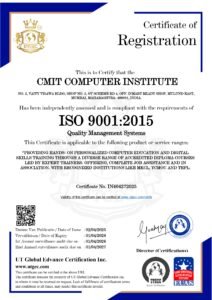
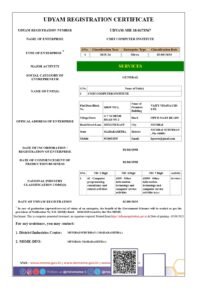
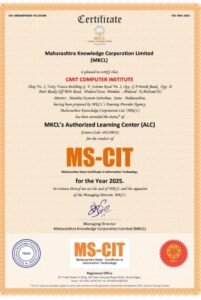

Why Choose CMIT ?

Certified and Experienced Trainers
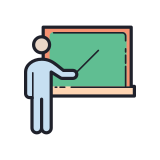
Weekdays / Weekend Batches Available

Affordable Fees

Small Batch Sizes
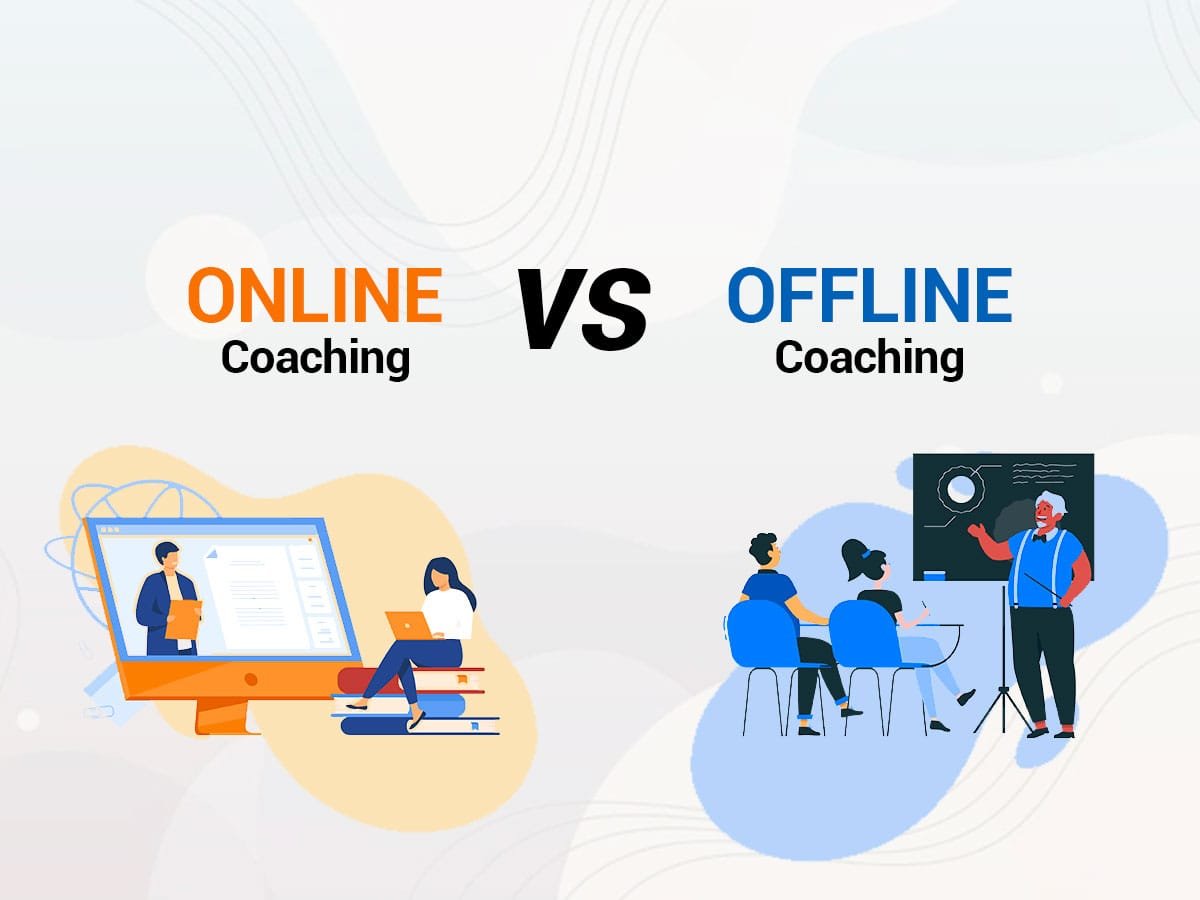
Flexible Learning Options

Individual Attention

Free Wi-Fi Facility

Periodical Assessment
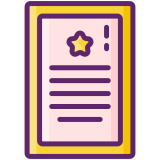
Course Completion Certificate
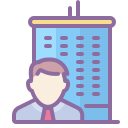
100% Job Assistance


